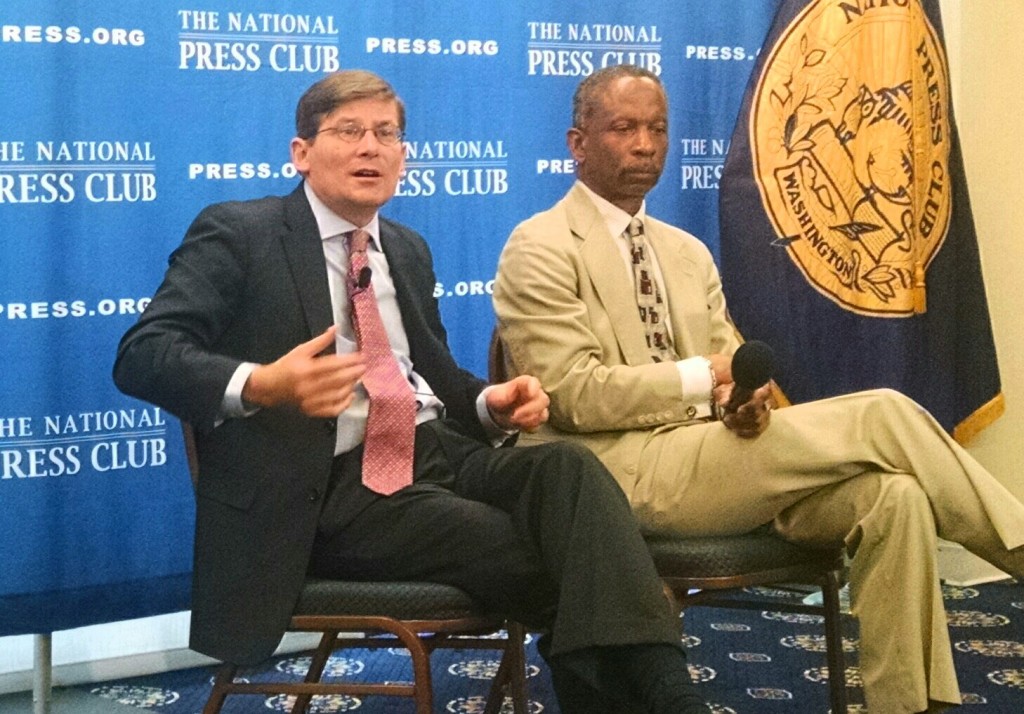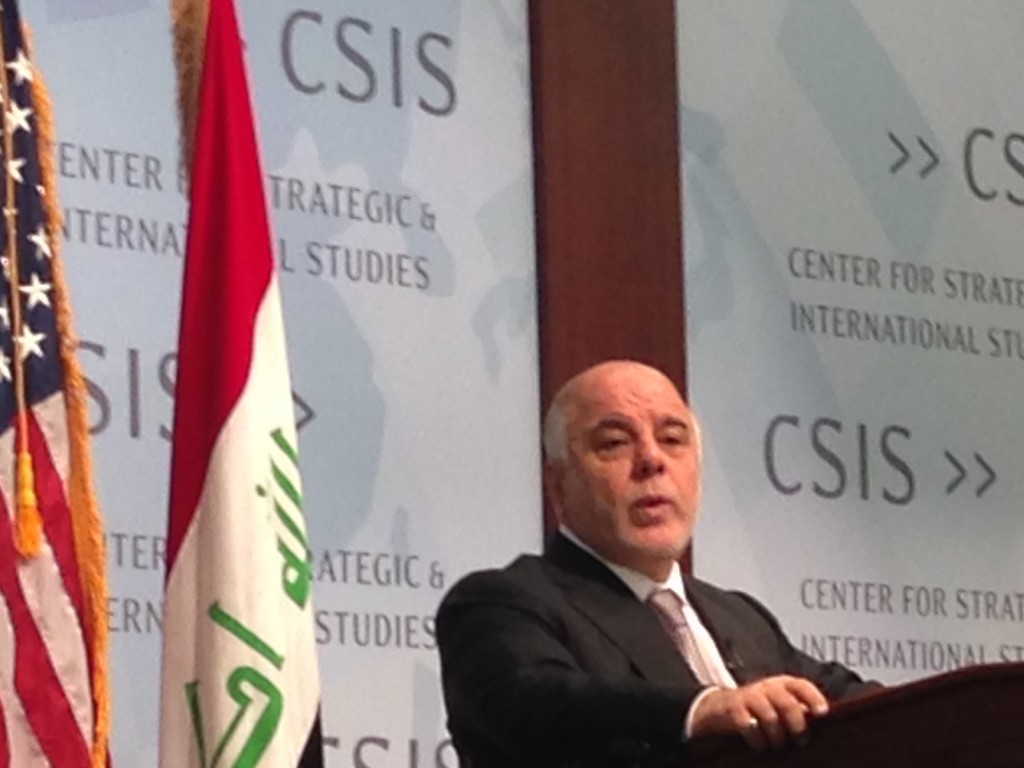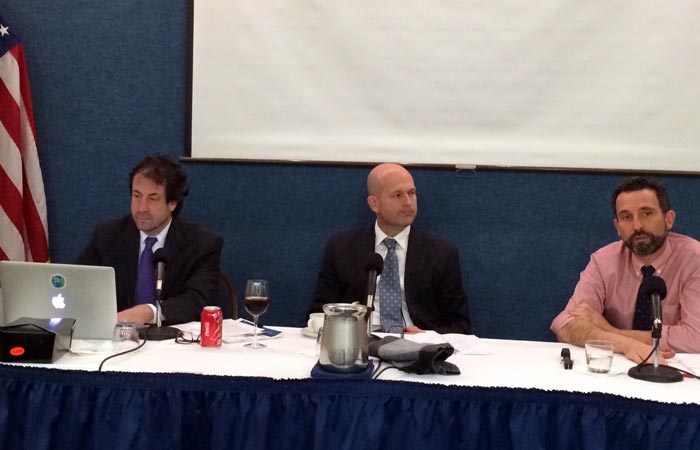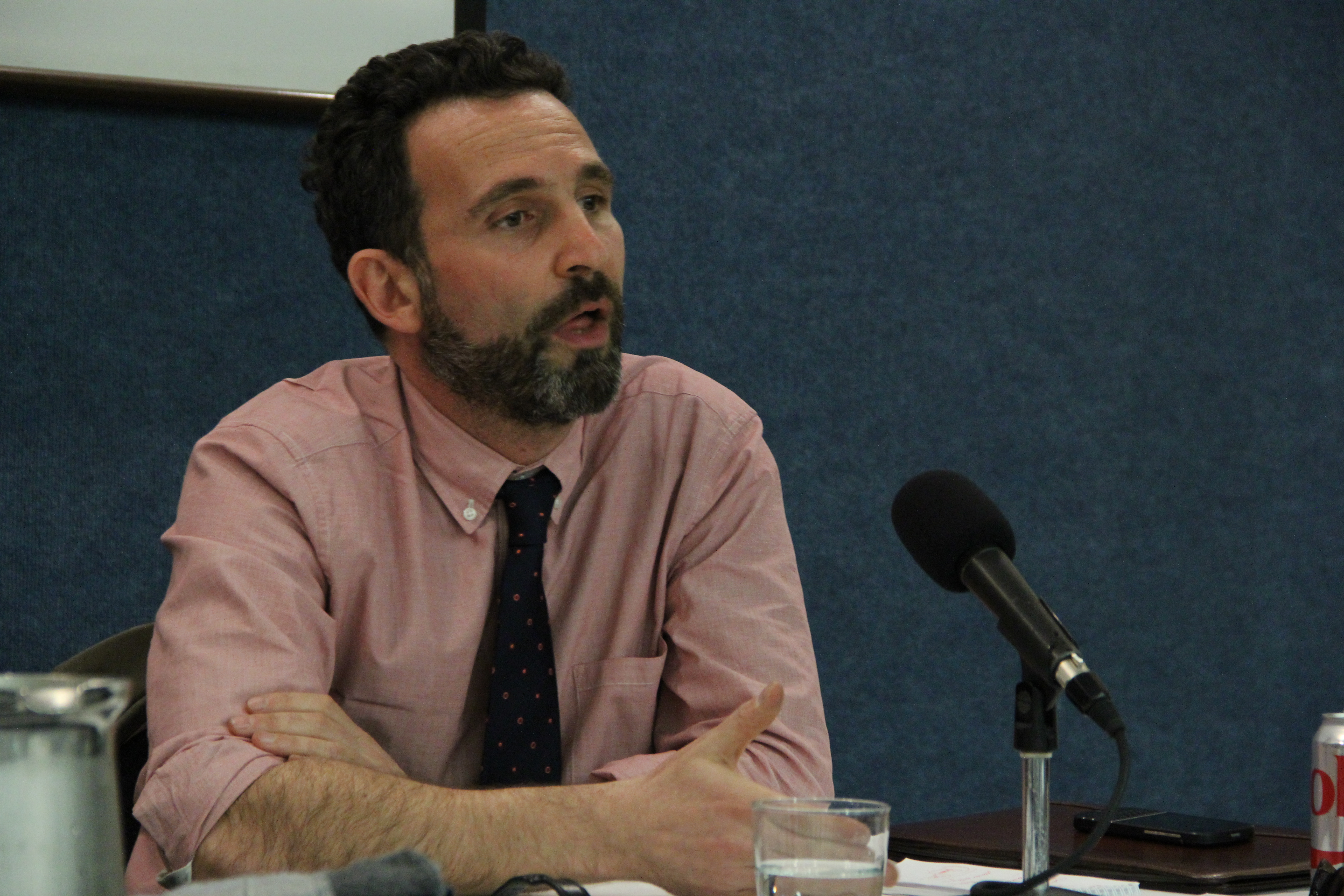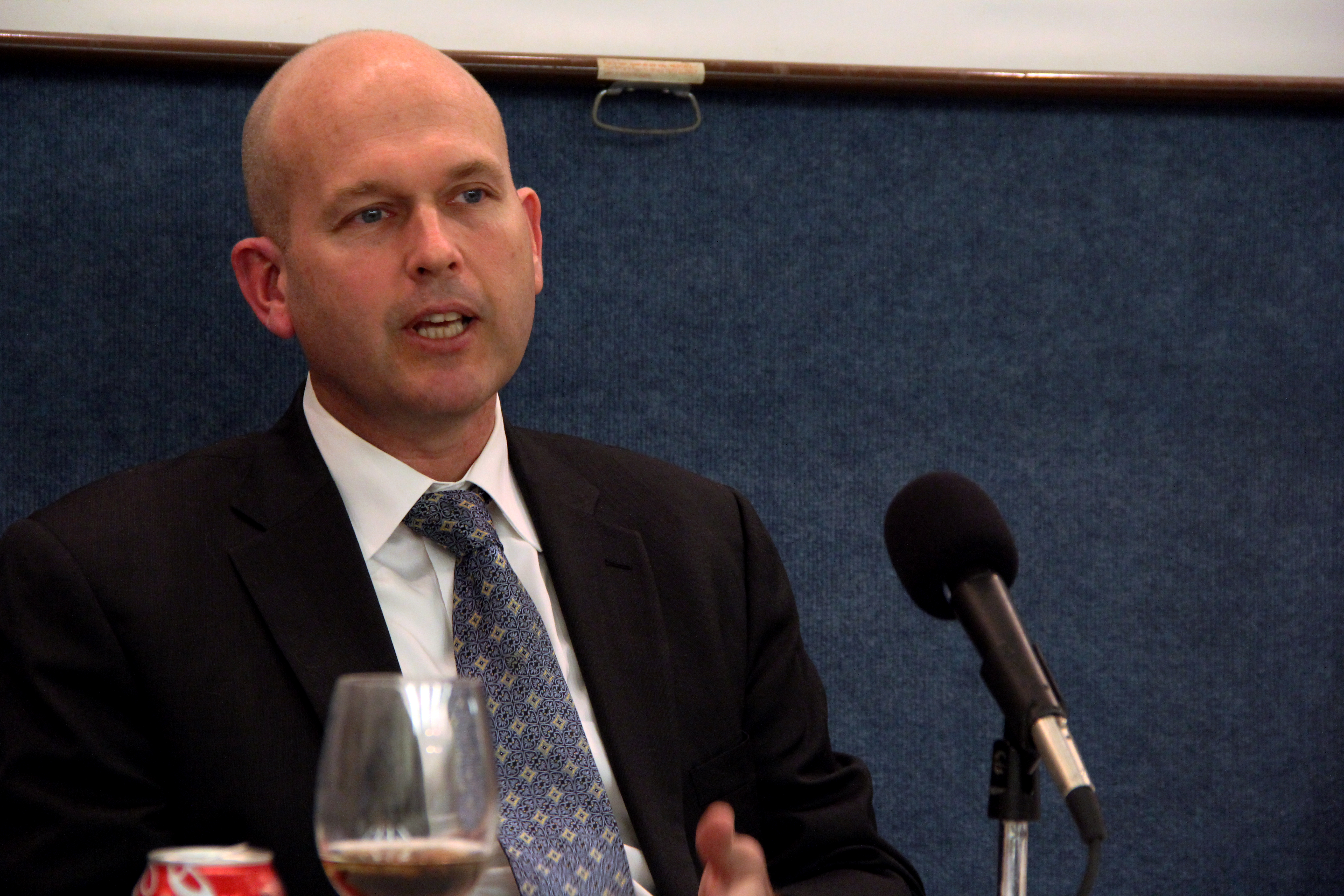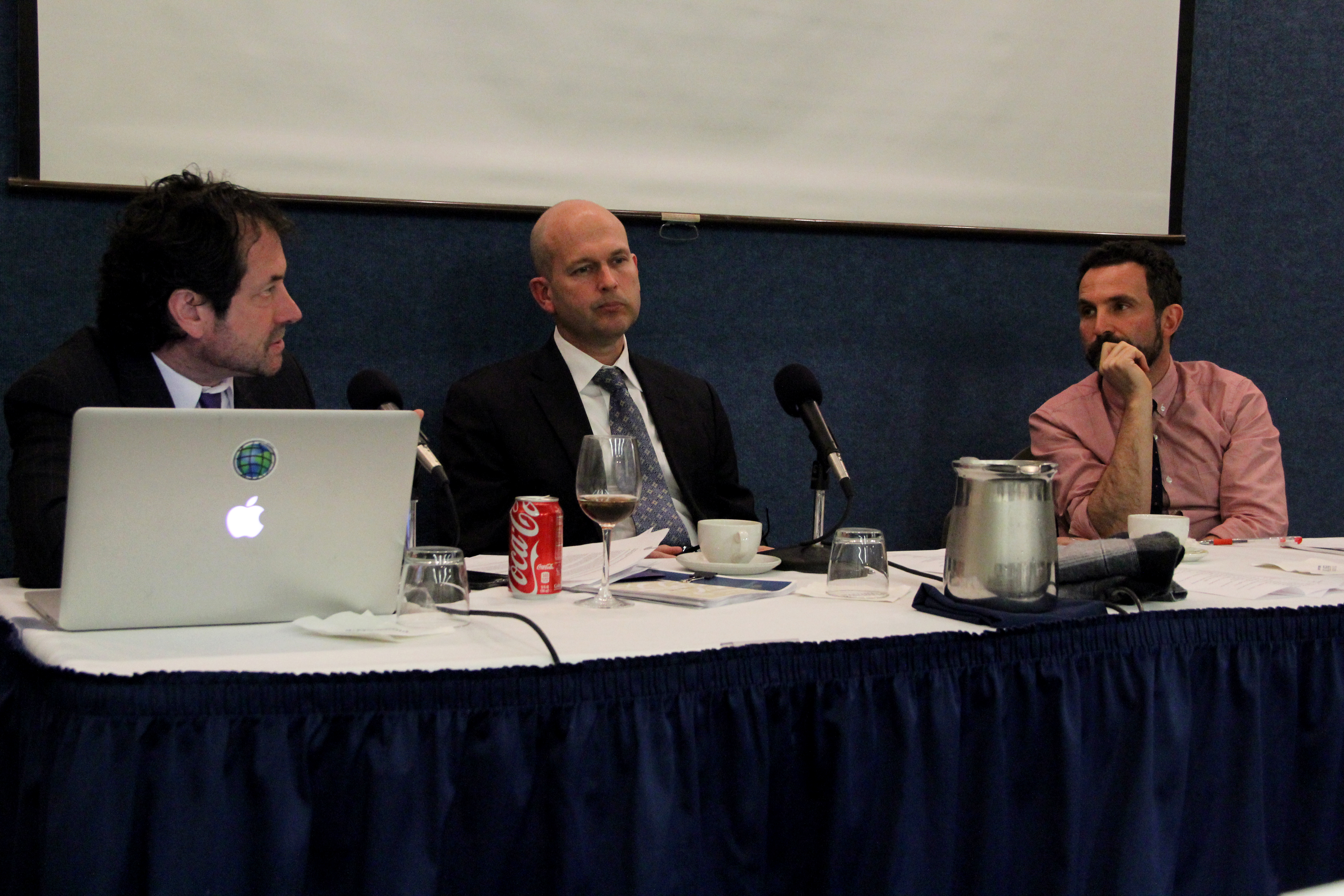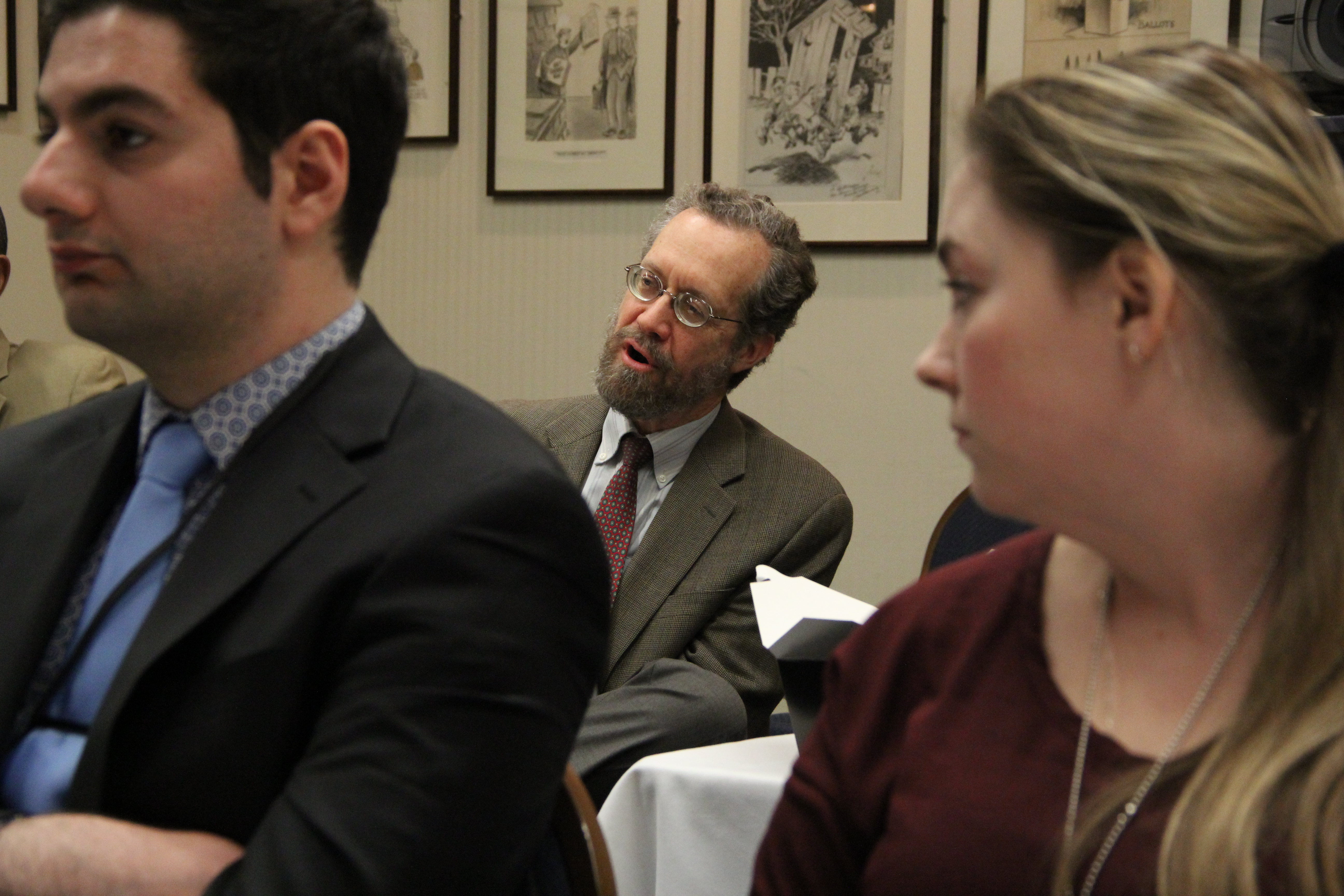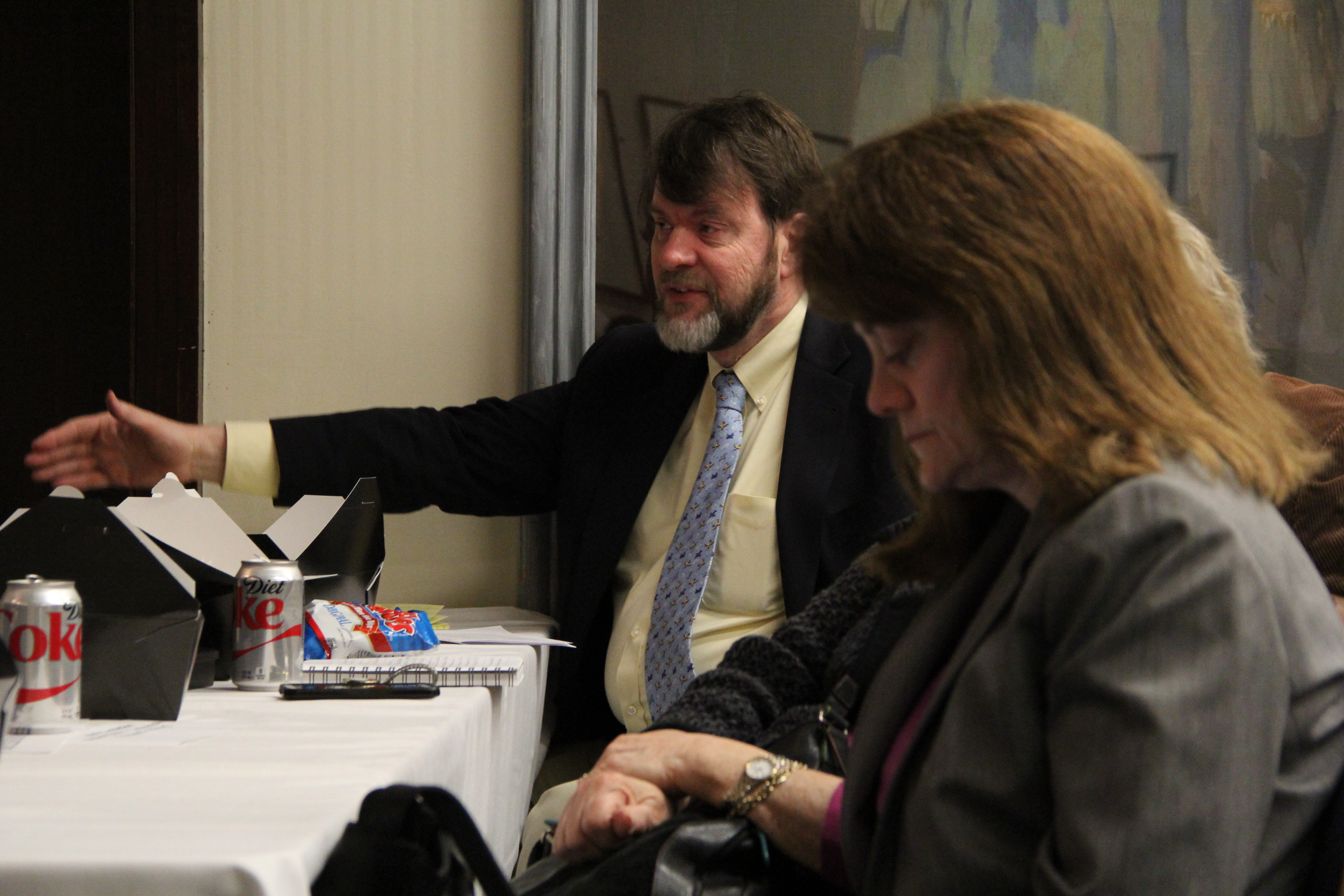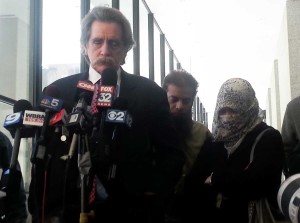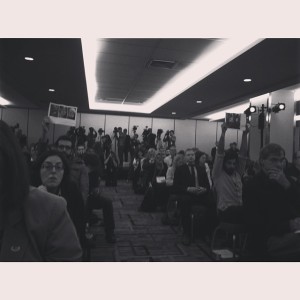WASHINGTON – Two prominent National War College professors of Strategy and Policy gave reporters a detailed look at how Islamic State terrorist group recruits and operates during an April 6 National Press Club panel.
The event, cosponsored by the Medill National Security Journalism Initiative (NSJI) and the National War College, and moderated by NSJI Director of Education and Outreach Josh Meyer, sought to increase the media’s knowledge of the Islamic State.
The analysis by Dr. Omer Taspinar and Dr. Richard B. Andres broke down into two sections: the relationship between radicalization and the Islamic State’s rise to power, and the role of social media in radicalization.
Radicalization and the Islamic State
Taspinar said that the creation of the Islamic State is, at its core, a result of Sunni Muslims’ oppression by a Shiite majority within Iraq.
According to Taspinar, de-Baathification in Iraq – or the breakup of the Saddam Hussein-led Baath Party – led to the rise of a Shiite majority within the country, a backlash against Sunni Muslims and the birthing “a sense of Sunni resentment.”
“It’s very hard for the Sunni minority of Iraq to come to terms with the fact that Shiites now are running the country,” he said, noting that Sunnis had historically possessed control of the country from its initial founding until the Baathist fall.
Taspinar also teaches at the Johns Hopkins School of Advanced International Studies and serves as a Nonresident Senior Fellow at the Brookings Institution focusing on foreign policy and working with the organization’s Center on the United States and Europe.
He went onto explain that former Baathist leaders became delegated to a lower class and “felt persecuted.” The resulting anger, he said, fueled radicalization. According to Taspinar, in the wake of the Shiite rise to power, Sunnis suffered from collapses in security, capacity and legitimacy (or the descrecration of their former socioeconomic and political status).
“All this contributed to the rise of ISIS, which captured basically the most radical elements within the Sunni groups … starting in Syria,” he said.
Iraqis who sympathized with the radical parties in Syria started crossing the border to join ISIS, he continued.
“ISIS did something that no other radical Salafist jihadist organization managed to do: It established a state — it declared a state,” Taspinar said.
The idea of a caliphate with sovereign government and territory that came with the promise of a return to prophet-era morals and living (and in which Sunnis could return to a once-held state of glory) appealed to disenfranchised Sunnis and drove recruitment, he said.
“You have to understand that, for people in the Islamic world, especially the disenfranchised radicalized youth, there’s this strong sense of nostalgia for the golden age of Islam – the days when Islam was able to actually create a great civilization which surpassed the West in terms of its scientific, architectural, artistic, military achievements,” he said.
The idea of citizenship in such a state – as opposed to membership in a terrorist group like al-Qaeda had long promised – appealed to Muslims in Europe, North Africa and the Middle East.
Joining ISIS’ “Islamic utopia” was made even easier by geography, Taspinar explained, since all one had to do was cross the Syrian border to arrive.
Taspinar attributes the recent spark in the Islamic State’s recruitment of middle-class, educated individuals from Europe to “relative deprivation.”
He explained this concept as the process by youth become disheartened with the lack of employment avenues despite their education and a “sense of perceived racism” that makes them believe their upward socioeconomic mobility is limited by their Muslim identity. According to Taspinar, the dismal outlook breeds “frustrated achievers.”
In this sense, he explained, there’s more to the Islamic State recruitment than just religious ideology.
According to Taspinar, its early days, the Islamic State was largely unconcerned with the West, more focused on preserving the integrity of its self-declared state in terms of governmental and territorial control.
However, according to Taspinar, its dedication to maintaining caliphatic sovereignty meant that it felt compelled to respond to threats made upon it by outside forces – such as the United States government. This, in turn, sparked the group’s evolution into a more violent form that we, as Westerners, are more familiar with seeing stream across our TVs and occupy our headlines.
How Social Media Radicalizes
Richard B. Andres, who has 16 years of teaching experience and serves as the Energy and Environment Security Policy Chair at the Institute for National Strategic Studies, took a different approach to radicalization.
Rather than examining it in the context of geopolitics, he tackled it in the key of cyber, contextualizing the roots of social media’s capacity to radicalize its users and how that capacity has been used by the Islamic State.
“There’s two particular psychological things politically that social media takes advantage of,” Andres explained.
The first is that, since “human beings are attracted by sensation,” we are literally wired to fall for clickbait. The second is that people are psychologically more likely to click on things that backup our preexisting opinions.
“That’s why Republicans watch Fox News and Democrats watch MSNBC,” Andres explained.
According to Andres, social algorithms serve up social content that plays to preexisting biases, beginning with more mainstream, subtle pieces and eventually building up to obviously radical ones. That helps push people, especially young and impressionable males – toward radicalization, he said.
“Social media will inadvertently… push you more and more like a cult to the point where you’re isolating [sic] from friends, you’re isolating from ideas, all the way to the extreme,” he said.
However, he says traditional media is necessary to fuel the fire, since it supplies content to feed the effect. Content distributed through social channels needs to come from somewhere (since Facebook and Twitter aren’t news organizations), so, like it or not, the inherent biases present in news coverage contribute to the cult effect.
Levels of susceptibility differ, he said, but people who come from “autocratic” countries whose governments keep citizens distanced “from non-biased information” are more likely to fall for the effect, which Andres called “clickwashing.” He says that is because their experience with strongly biased media makes more moderate mainstream coverage seem less trustworthy.
But social media’s radicalizing tendencies don’t stop at creating lone wolves. In fact, Andres noted, its other radicalizing strength does quite the opposite.
“Social media allows people to coordinate their behavior,” he said. “The main defense that autocracies have against dissidents and rebels is they prevent people from coordinating.”
Andres said that the uniting nature of social media helps to counteract suspicions of surveillance that radicals might have, helps you find people who will – much like the aforementioned content – reinforce your extreme biases, and plan tangible gatherings.
ISIS has capitalized on these characteristics of social media to “groom” potential terrorists via clickbait, he said.
It accomplishes this in a five-step manner, Andres explained.
First, he said, ISIS makes “sensationalist images” of graphic violence and other click-inducing things. He noted that Islamic State social followers generally don’t stay engaged by this kind of content, but that it is effective in making first cyber contact via clicks.
Next, he said, they designed those images to link to actual news stories about ISIS’ impact around the world in order to make themselves appear more legitimate.
Third, he said, they “flood Twitter” with identical, radicalizing stories to the point where potential recruits have no choice but to be pulled in due to the psychological pull discussed earlier.
Fourth, he said, they reach out to potential recruits in covert ways, such as through the use of onion routing (such as Tor) to mentor them and to arrange fund transfers associated with joining up.
Finally, he explained, they use social as a way to arrange travel to an ISIS location.
From there, Andres said, the Islamic State uses “the wisdom of the Marine Corps” to pull people with privilege in.
“What the Marine Corps does, it says: ‘This is a cause that’s worth dying for; come fight with us. You’re gonna live in the mud, we’re gonna kick your butt and call you names. It’s gonna be really, really hard, but you’re gonna do something important. You’re gonna suffer and you’re gonna fight.’”
“That message resonates with young people very strongly,” he explained.
According to Andres, this is evidence that the Islamic State has figured out a key factor in the human psyche: People are also wired to want to make a difference in the world – “not just to live well.”
